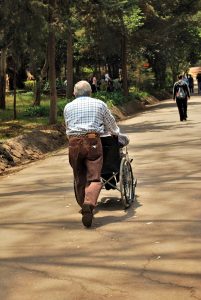 What do you know about mental health and nursing home neglect?
What do you know about mental health and nursing home neglect?
According to an article in Psychology Today, mental illness has become “the biggest economic burden of any health issue in the world, costing $2.5 trillion in 2010” alone. By 2030, that cost is expected to nearly triple to $6 trillion. However, despite the prevalence and costliness of mental illness—approximately 450 million people across the world currently suffer from some form of mental illness—the article emphasizes that mental health conditions continue to carry a stigma that prevents us as a society from talking about them openly and honestly. Unsurprisingly, the continued stigma of mental health or mental illness also makes its way into nursing homes, where patients who suffer from a mental health condition often becomes victims of nursing home abuse or neglect.
What can we do to prevent elder neglect among mental health patients?
 Southern California Nursing Home Abuse Lawyer Blog
Southern California Nursing Home Abuse Lawyer Blog







 First, it’s important to have a clear idea about why hospices are bringing in relatively healthy older adults, and how these companies are profiting from non-terminal patients. How did this start to happen? In short, many hospice care centers have begun recruiting patients with aggressive marketing tactics, and many of those patients aren’t terminal. It’s in the financial interest of a hospice chain to “find patients well before death,” the Washington Post reported. And the reason is simple: “Medicare pays a hospice about $150 a day per patient for routine care, regardless of whether the company sends a nurse or any other worker out that day. That means healthier patients, who generally need less help and live longer, yield more profits.”
First, it’s important to have a clear idea about why hospices are bringing in relatively healthy older adults, and how these companies are profiting from non-terminal patients. How did this start to happen? In short, many hospice care centers have begun recruiting patients with aggressive marketing tactics, and many of those patients aren’t terminal. It’s in the financial interest of a hospice chain to “find patients well before death,” the Washington Post reported. And the reason is simple: “Medicare pays a hospice about $150 a day per patient for routine care, regardless of whether the company sends a nurse or any other worker out that day. That means healthier patients, who generally need less help and live longer, yield more profits.” When we think about transitioning an elderly loved one into a nursing home or an assisted-living facility, we expect that the facility will provide care and won’t engage in acts of nursing home abuse or neglect. However,
When we think about transitioning an elderly loved one into a nursing home or an assisted-living facility, we expect that the facility will provide care and won’t engage in acts of nursing home abuse or neglect. However, 






